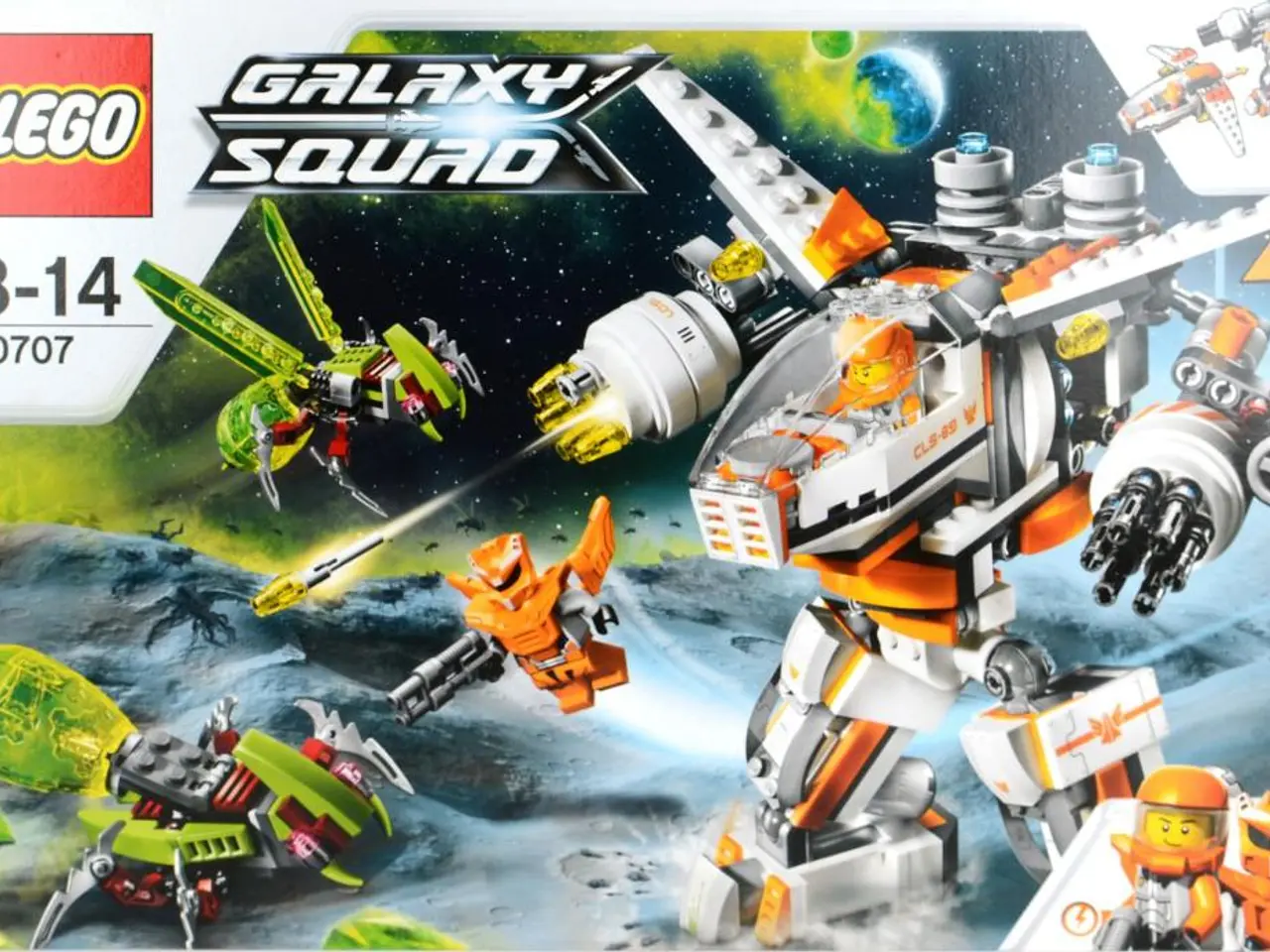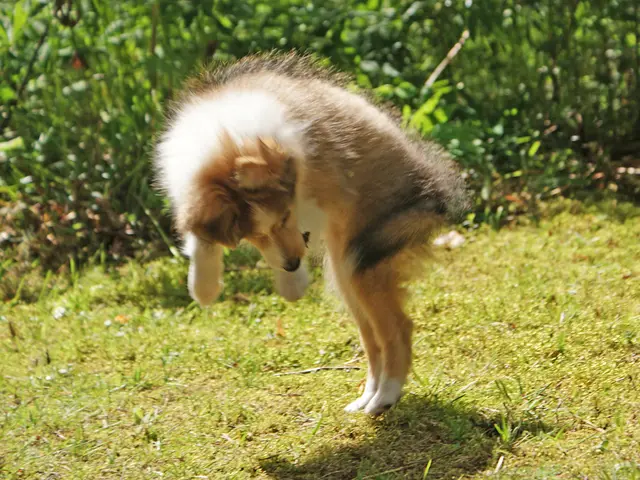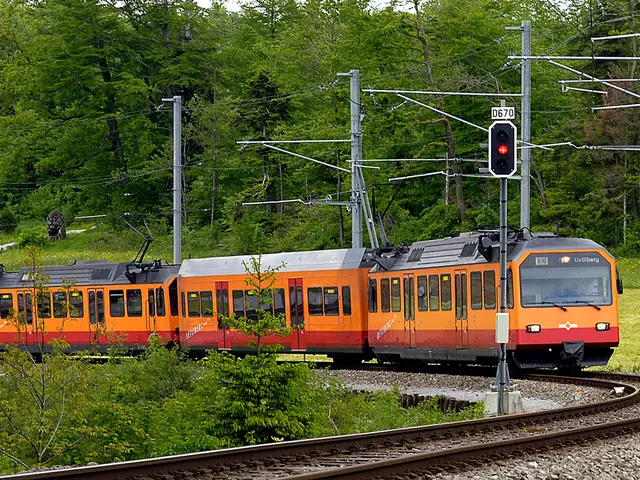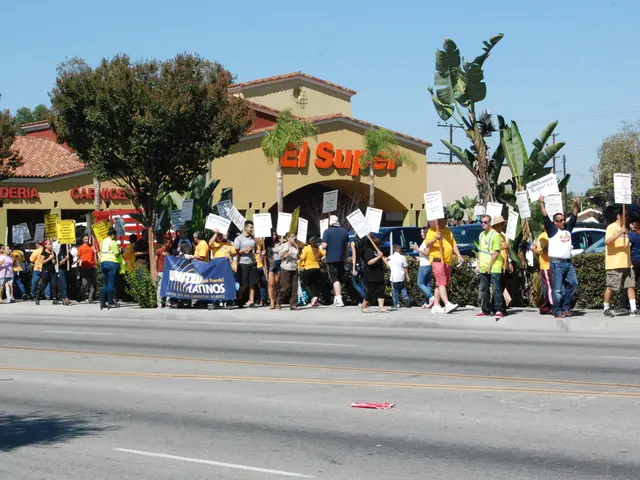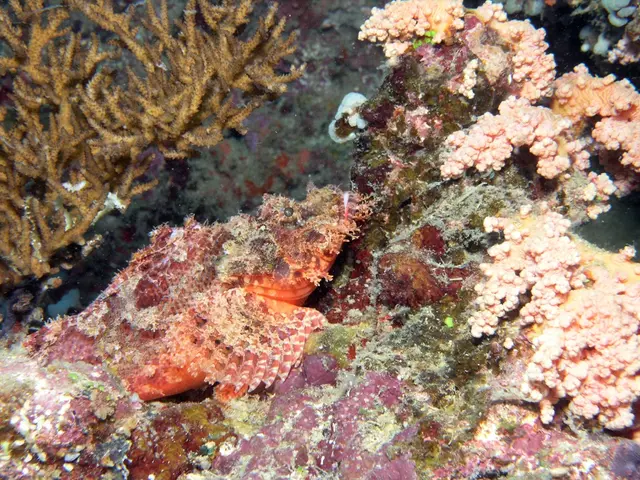Space Technology Startup Icarus Secures $6.1 Million in Seed Funding for Implementation of Robotic Workers in Orbital Environments
In an exciting development for the space industry, New York startup Icarus Robotics has partnered with Voyager Technologies to send a remotely-piloted robot to the International Space Station (ISS) for a year-long residency.
The robot, resembling an underwater drone, will use fan-powered propulsion to move around the space station and has two arms for interaction. Its primary function will be to handle cargo, perform equipment checks, and potentially conduct scientific experiments.
The goal is not to replace astronauts but to alleviate their workload, allowing them to focus on science and discovery. Icarus's capabilities are seen as revenue-generating and capable of creating new science.
The cost of keeping an astronaut alive in space is $130,000 an hour, making it feasible to have a tele operator paid $130,000 a year to pilot the robot. This innovative approach could pave the way for more cost-effective space missions.
Jeff Bezos' company, Blue Origin, shares a similar vision. They plan to deploy AI-driven work robots on future commercial space stations to take over tasks that astronauts perform in daily operations.
Icarus's founders, Jamie Palmer and Ethan Barajas, identified the issue of astronauts spending too much time on mundane tasks instead of groundbreaking science. Their long-term vision is to have AI-powered robots working everywhere in space.
Palmer, with a background in robotics, has experience building robots for the medical field during Covid, while Barajas brings space expertise, having worked on an autonomous plant growth lab sent to the ISS and lunar rovers at JPL.
Future iterations of Icarus's robots could include extra-vehicular capabilities to handle tasks in the vacuum of space, and on the surface of the Moon and Mars. Icarus envisions scenarios where its robots are flying on multiple commercial space stations.
Icarus Robotics recently raised a $6.1M seed round, and the company plans to have its robots working hand-in-hand with astronauts on space stations when they're present, and keeping the science progressing when the station is uncrewed. The year-long residency aims to build a dataset to train future AI-powered models.
As for communication, Icarus has not yet mentioned plans for Twitter, LinkedIn, Facebook, or Email. However, their focus on space exploration and robotics is sure to generate interest and updates in the coming years.
Icarus believes that commercial space stations, in the future, will have a harder time justifying astronauts handling cargo and performing maintenance. By automating these tasks, Icarus aims to free up astronauts for more important scientific pursuits. This partnership with Voyager Technologies is a significant step towards realising this vision.
Read also:
- projected growth for the natural acetoin market: $291.6 million by 2034
- Latest Edition of Bus-News Magazine Arrives for 2023!
- Testing the Camp Mode of the 2025 Tesla Model Y with Juniper's interior housing two kids, shockingly low CO2 levels were discovered.
- Demonstrating Carbon Storage in Agricultural Forestry through Digital Monitoring and Verification
